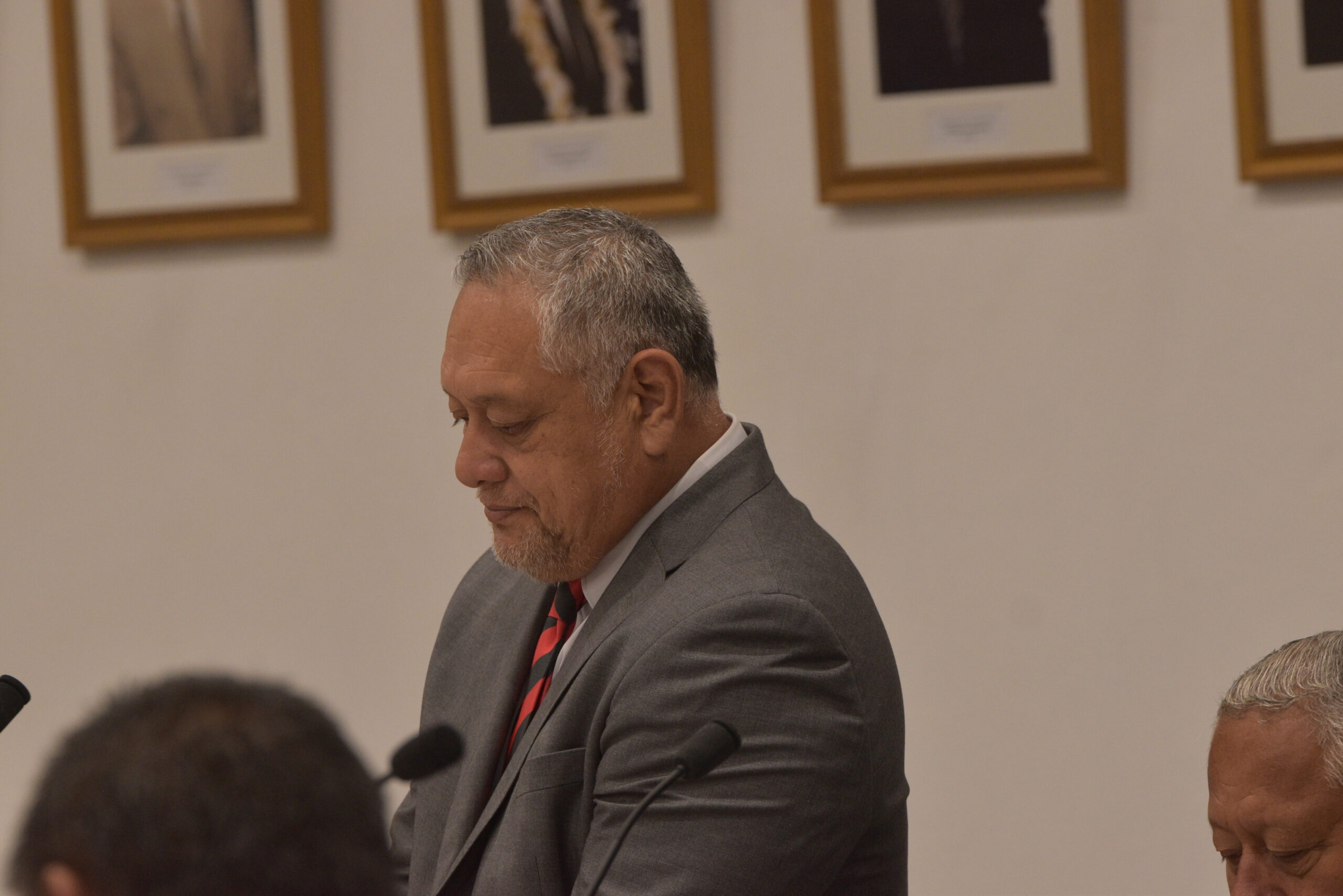Cook Islands to seek rebate on New Zealand tyre levy
Monday 18 March 2024 | Written by Losirene Lacanivalu | Published in Local, National, Parliament

Member of Parliament for Akaoa, Robert Heather in Parliament. LOSIRENE LACANIVALU /24031709
The Cook Islands government will approach New Zealand regarding a newly imposed tyre levy, seeking an exemption or rebate similar to VAT exemption on exports.
Prime Minister Mark Brown made this comment at the recent Parliament Sitting when Member of Parliament for Akaoa, Robert Heather of the Cook Islands United Party informed him of the New Zealand Tyre Stewardship fee that will be introduced.
Heather said all tyre imports into New Zealand will be taxed.
“Exporters out of New Zealand who regularly export to the Pacific Islands have been trying to lobby the New Zealand government for exemptions or rebates but to no avail,” Heather said.
“The problem here is we have just under 17,000 vehicles in the Cook Islands. An increase for motorcycle tyres of 21 per cent to the higher end of 51 per cent for a bus, truck and loader tyres. So, this will hugely impact not just the government, our tourism industry, the rental operators and private businesses,” he said.
Heather asked the Prime Minister if the government was aware of this levy and if there was a way that the government could lessen the impact or mitigating circumstances regarding the importation of tyres.
PM Brown while acknowledging MP Heather for bringing the matter to their attention said government’s first step would be to follow the formal channels to see if there is a possibility of introducing a type of rebate similar to the exemption of VAT of products that are imported into Cook Islands on exports.
“So that we are not applying the same tax twice on the same products.”
Brown said he was not aware of it and upon reading about it at that time, he believes the reason why the levy was being imposed by the New Zealand government is to try and address the issue of the disposal of these tyres when they have reached the end of their life.
“If what the Honourable Member says is correct that there is no opportunity for rebate for tyres that are exported to the Cook Islands, it means those costs will be passed onto the buyers of those tyres here.”
Brown, who is also the Finance Minister, said the assessment of the levy is based on the weight of the tyre.
“So, the bigger the tyre, the more expensive the levy.”
He reiterated that this was a law passed by the New Zealand government.
“The first step for our government to do is to approach the New Zealand government through our formal channels to see if there is a possibility of introducing a type of rebate similar to the exemption of VAT of products that are imported into our country on exports so that we are no applying the same tax twice on the same products. “
Raro Cars general manager Gus Meyer said the company only passed on the extra charges to the customer as a last resort, but they try their best to absorb most of the cost internally.
“And we proved this during Covid when we reduced our HP (Hire Purchase) rates and margins to counter the huge increases in sea freight and people's strained finances.”
Meyer said they will continue to buy the best quality tyres from the factory and import direct.
“This will ensure the best tyre prices for the Cook Islands people, avoiding this surcharge on the Pacific Islands from NZ.”
Meanwhile, PM Brown also said that the Ministry of Finance and Economic Management is in the process of looking at applying some sort of levy on goods that are imported into the country as a means of building up a small pool of funds to enable these waste products to be returned back to where they came from.
“This includes things like cars, batteries, tyres, white ware, computers and so forth. This has not been implemented yet because we are still working on what would be the economic implications on business and consumers,” he added.




















































